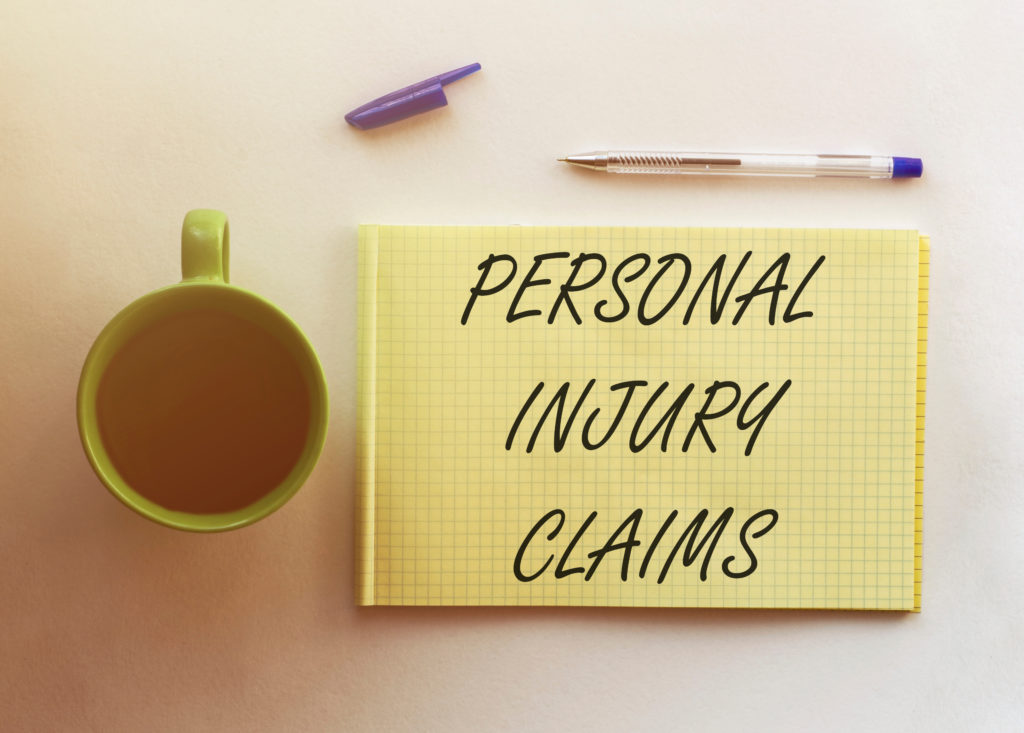What Is a Personal Injury Claim in Philadelphia?

Like all so-called “tort” claims, a personal injury claim is based on two issues: who was liable and what damages the injured party sustains. If you're asking what is a personal injury claim, a significant percentage of personal injury claims arise out of car accidents, but there are many other types. There will be a claim for, usually, negligence by the driver who injured you and a claim for compensation for injuries and losses caused by that negligence.

What Is Negligence in Philadelphia?
When someone commits a wrong that is not a crime, and the wronged party seeks civil damages, the law involved is the law of torts or civil wrongs. Negligence is a tort that in Pennsylvania requires that four elements be proven by the person making a claim for damages. These are:
- A duty recognized by law requiring the injuring party to meet a standard of care
- A failure to conform to that standard
- That the injury was caused by the failure to meet the standard
- Actual loss or damages to another
A personal injury claim meeting all of these standards can be filed as a civil lawsuit in Pennsylvania.
What Is the Standard of Care in Pennsylvania?
Pennsylvania requires that individuals exercise that degree of care that a reasonably prudent person would have used under the same circumstances. That duty can be established either by a statute defining the duty or by common law decided in court cases. When asking what is a personal injury claim in Philadelphia, taking the standard of consideration into consideration is important to determine if your case should be pursued.
What Is a Personal Injury Claim NOT Based on Negligence?
What is a personal injury claim in Philadelphia if it is not a car accident? Torts can be intentional or non-intentional personal injury claims. The intentional torts of assault, battery, intentional infliction of emotional distress, or trespass to personal property might apply in the latter example. Your attorney can help you decide which is better in your case.
For accident claims, if a driver accidentally hits you going through an intersection, that is non-intentional, and a claim would be based in negligence. If a driver does not like you and deliberately hits you or your car, that is an intentional tort, which is treated differently than negligence.
Comparative Negligence in Pennsylvania
Pennsylvania is a comparative negligence state. Under a comparative negligence standard, the finder of fact – usually the jury – will apportion the parties’ blame to the accident. If one driver is entirely at fault, then that driver will be responsible for all of the damages. If not, Pennsylvania law applies a modified comparative fault rule that requires the jury to find the amount of damages and, second, state the percentage of fault of each party. His or her share of the fault will then reduce the damages claimed by the person filing the lawsuit.
The rule is called “modified” because if the claimant is found to be 50% or more at fault, he or she will receive nothing. This rule also applies to insurance adjusters in Pennsylvania. If you are concerned about how this rule might impact your recovery, you should contact an attorney quickly after your accident.
Negligence Per Se in Pennsylvania
One of the easiest ways to prove a failure to observe the required standard of care is to establish that the other driver violated a statute. Under Pennsylvania law, this violation is negligence per se. Therefore, if you can show the violation of law, you have proven negligence without providing anything else. In other words, the standard of care requires that, at a minimum, the other driver obey the traffic laws.
Proving Causation in Philadelphia
When asking what is a personal injury claim, it is not enough to prove that the other driver failed to meet an applicable standard of care. You must show that the failure to meet that standard was the actual cause of the injury. That is, the driver may have violated the statute by having broken brake lights, but unless the lack of brake lights caused the injury, a claim for damages would not succeed.
There are two types of cause: factual cause, which means that the individual’s conduct actually caused the injury, and proximate cause, which refers to whether the law will hold the individual liable for their conduct, which caused the damage. Proximate cause in Pennsylvania will be denied where the court finds it “highly extraordinary” that the conduct would have caused the harm at issue.
Calculating Personal Injury Damages in Philadelphia
The final element to be proven in a personal injury case is the damages the plaintiff seeks to recover. Pennsylvania allows for recovery of both economic and non-economic damages. Non-economic damages are the less tangible damages from your accident like pain and suffering, emotional distress, or the loss of companionship. Damages can include:
- Vehicle repair or replacement
- Medical Expenses
- Lost wages
- Pain
- Emotional Distress
- Loss of spousal affection or companionship
Call Us to Speak with a Philadelphia Personal Injury Lawyer
If you have been injured, you need legal representation immediately. Call us or contact us online today to schedule a free case evaluation with a personal injury lawyer in Philadelphia.
